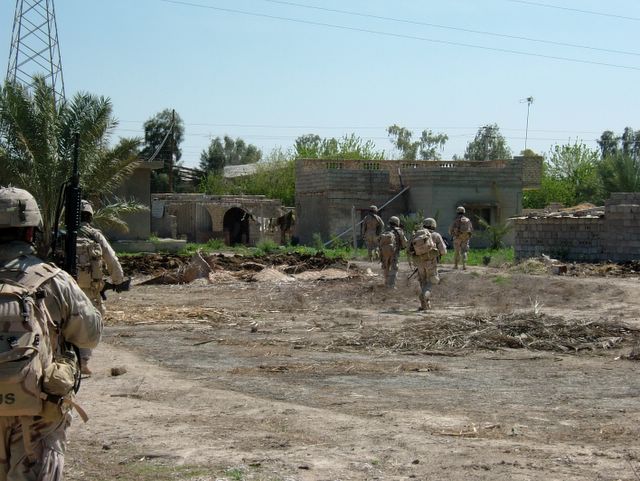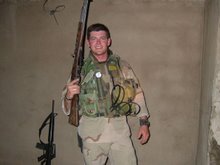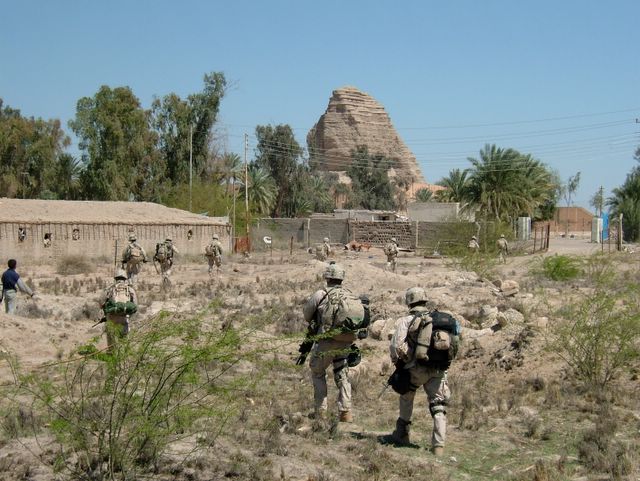Soldier Saves Man from Drowning
By Sgt. Jordan E. Werme
130th PAD, Connecticut National Guard
WEST HAVEN, Conn. , Dec. 5, 2006 — When Sgt. Kristi J. Artigue joined the Connecticut Army National Guard the summer before her senior year of high school, it was a chance to broaden her experiences.
“I’ve always been a risk taker,” said Artigue, 23, now a medic with the 141st Medical Company.
On Nov. 10, Artigue called upon the skills learned during her six years of National Guard service -- including a recent deployment to Iraq -- to help save the life of a man who may have drowned.
“I was passing by (Supersonic Car Wash, West Haven) after work when I saw my boyfriend’s car,” said Artigue. “I called him to say ‘Hi’, and he told me someone had had a seizure and fallen into the water.”
Her first reaction: call 911. Artigue told her boyfriend that he should call for emergency services, but because of the urgent tone of his voice, she pulled out of rush-hour traffic in New Haven and rushed to the scene.
When Artigue arrived, she found a group of people hanging onto the shore and forming a “chain,” trying to keep a man above the fast-moving water.
“Tom,” a middle-aged man, had suffered a seizure and fallen into a section of the West River. Unable to swim, he struggled to remain above the surface with the help of several civilians and two West Haven police officers. The chain was trying to hang on until the local fire department rescue crew could arrive, but everything seemed to Artigue to be well under control.
Then the life-defining event happened.
“He let loose,” said Artigue, “and went under for one or two seconds. Long enough to know he wasn’t going to be coming up again. And he was moving out farther from the shore toward the center of the river.”
At that point, Artigue let her training take over. The nursing student and Iraq War veteran jumped into the freezing water and swam out about 10 feet to where Tom was struggling for air.
“It was too cold to talk,” said Artigue, “but I grabbed his vest and tried to keep him above the water. He grabbed a hold of me and started to pull me down with him, but I was able to drag him by his vest to shore.”
The human chain helped to pull both Artigue and Tom out of the water. On a cold November day, coming out of cold, moving water, communication was difficult, but Artigue was able to keep Tom talking and conscious until emergency crews arrived.
“(The man) suffered a seizure and fell from a bridge,” said William E. Ciccosanti, who was the first officer at the scene of the incident. “(Artigue) risked her own safety to save a stranger. She definitely did a good job and should be commended for that.”
Tom was fishing from a bridge when he suffered the seizure, tumbled over the railing and fell more than seven feet into the water, just a few feet from the spot where the river is dammed. Had Artigue not jumped into the water when she did, there was a good chance that the victim would have been pulled under and into the dam, said Ciccosanti.
“This was the first time I’ve had to take it upon myself to take action,” said Artigue. “In the military there’s always someone there to help, but this time I wasn’t sure anyone else there could have helped the way I could. Being in the military has given me the confidence to do things I wouldn’t have as a civilian. It puts me a step above those without military training.”
A future trauma nurse, Artigue plans to use her experiences in the Guard and in Iraq to save as many lives as possible.
“Since Iraq,” she said, “I’ve learned to adapt and overcome. I saw what was happening and I had no option but to get involved because of not only my medical training, but also because of my personal responsibility. “I will always appreciate my military experience. It’s something I would never give up,” said Artigue.












